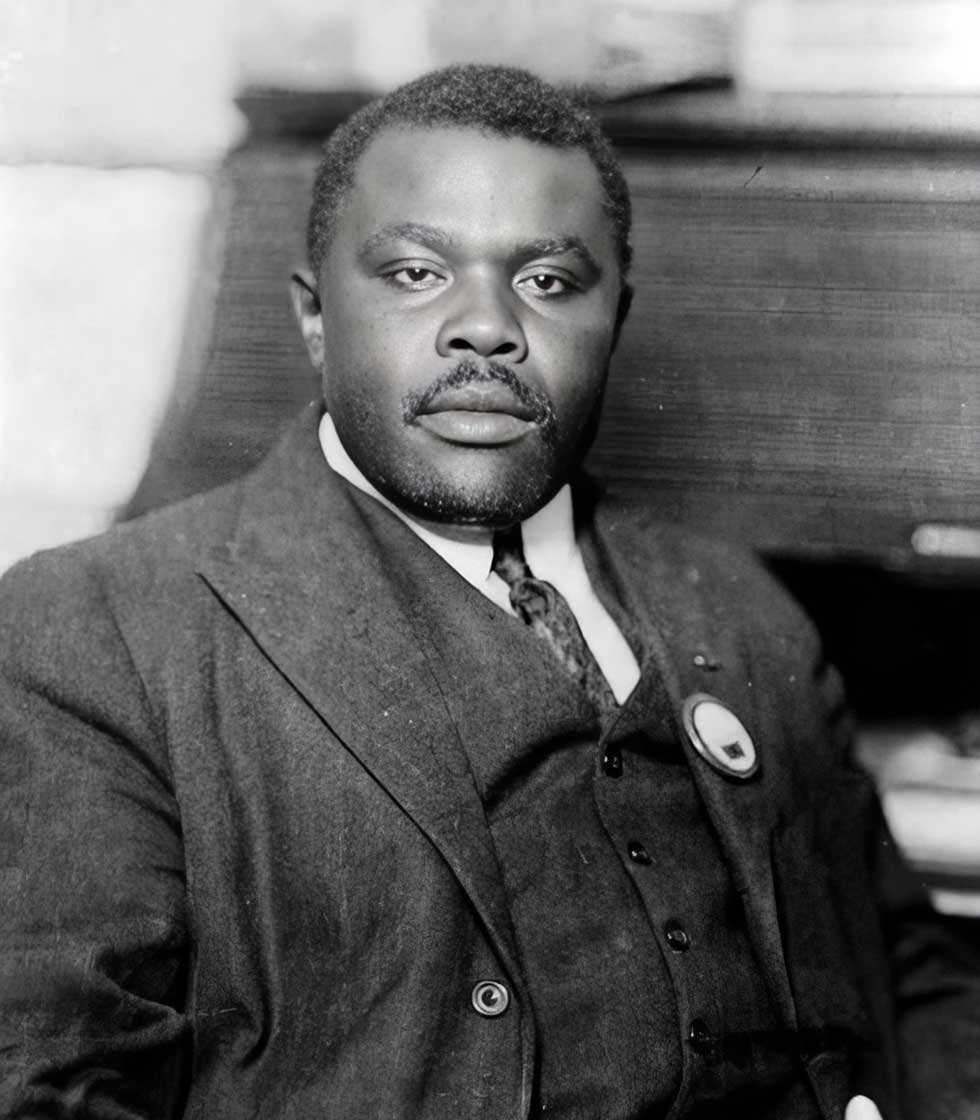DIASPORA | A Daughter's Duty: Yvette Clarke's Historic Push to Clear Marcus Garvey's Name

WASHINGTON DC, August 22, 2025 - In the marble corridors of Congress, where Caribbean voices have long fought to be heard above the din of American politics, Congresswoman Yvette D. Clarke is carrying forward a mission that transcends borders, generations, and the very definition of justice.
This week, the daughter of Jamaican immigrants introduced legislation that could finally lift a century-old stain from one of the Caribbean's most towering figures—Marcus Mosiah Garvey, Jamaica's First National Hero.
The Marcus Garvey Legacy Package represents more than political theater; it's a daughter's duty writ large on the American legislative stage.
For Clarke, like countless children of the Caribbean diaspora, Garvey's story isn't distant history—it's family folklore passed down through Sunday dinners and bedtime stories, a reminder of what their people could achieve when the world insisted they couldn't.
Two Resolutions, One Righteous Cause

This resolution calls on President Biden to take all appropriate measures to fully exonerate the man whose only crime was daring to envision Black economic independence.
Complementing this is H.Res. 655, which would designate August 17, 2025, as "Marcus Garvey Recognition Day"—a date that would join the pantheon of American commemorations while centering a figure whose influence stretched from Harlem to Kingston, from London to Monrovia.
The beauty of Clarke's approach lies in its understanding that presidential pardons, while significant, carry the whiff of mercy rather than justice.
Biden's pardon of Garvey was a welcome step, but it implicitly suggested wrongdoing that required forgiveness.
Congressional exoneration, by contrast, declares unequivocally: this man was innocent, this conviction was wrong, and America must reckon with that truth.
The Weight of Heritage
"Like every daughter of Jamaican immigrants, the singular and inspiring story of The Most Honorable Marcus Garvey has been with me since my earliest memories," Clarke declared, her words carrying the weight of millions who see their own family stories reflected in Garvey's journey.
This isn't abstract advocacy—it's personal vindication for a community that has watched their hero's name dragged through the mud of American jurisprudence for nearly a century.
For the Caribbean diaspora, Garvey represents something profound: proof that their small island nations could produce giants who shook the world. His conviction wasn't just an attack on one man—it was an assault on the very idea that Black people from the Caribbean could lead, could organize, could dream of economic empowerment on a global scale.
The Persistence of Vision
What makes Garvey's legacy so enduring is how prescient his vision appears in today's context. Long before "Buy Black" became a hashtag, Garvey was organizing the Black Star Line, one of America's earliest Black-owned shipping companies.
His Pan-Africanist philosophy anticipated by decades the independence movements that would sweep across Africa and the Caribbean. His economic nationalism prefigured the very strategies that modern Caribbean nations use to assert their sovereignty in global markets.
The racially motivated prosecution that derailed his American operations reads like a blueprint for how systematic racism operates—not through crude violence alone, but through the weaponization of legal systems against those who dare to challenge economic hierarchies.
The Federal Bureau of Investigation's targeting of Garvey mirrors patterns of surveillance and prosecution that Caribbean activists know all too well.
Swimming Against a Dangerous Tide
Like countless other daughters of the diaspora, Marcus Garvey has inspired me since my earliest days. It’s past time that all Americans learn the truth of his legacy, so they might celebrate him as the changemaker, trailblazer, and hero we know he was.
— @repyvetteclarke.bsky.social (@RepYvetteClarke) August 21, 2025
That is why I introduced… pic.twitter.com/rMeahHxDF7
Clarke's legislation arrives at an extraordinary moment when the current administration is systematically attempting to erase the positive contributions of Black and Hispanic citizens from American institutions and educational materials.
President Trump's executive order "Restoring Truth and Sanity to American History" has launched a comprehensive review of Smithsonian museums, demanding the removal of "improper ideology" and "divisive narratives" that acknowledge America's racial history.
The White House has specifically targeted the National Museum of African American History and Culture, claiming it distorts the nation's founding principles.
Simultaneously, the administration's "Ending Radical Indoctrination in K-12 Schooling" executive order threatens to defund public schools that teach materials acknowledging systemic racism or that promote what they call "White Privilege" awareness.
Schools across the nation have been given ultimatums to eliminate diversity, equity, and inclusion programs or risk losing federal funding, with particular threats to Title I schools serving low-income communities.
Against this backdrop of institutional erasure, Clarke's push for Garvey's exoneration becomes far more than symbolic—it's a defiant assertion that Caribbean and Black narratives will not disappear from American history.
Her success in advancing this package would represent a seismic shift at precisely the moment when such stories are under unprecedented attack.
More Than Symbolism
The implications extend far beyond Garvey himself. Success here creates precedent for addressing other historical injustices against Caribbean figures, while demonstrating the political muscle of a diaspora community that has often punched below its weight in American politics.
The Long Arc of Justice
"Our battle for truth and justice has taken a remarkable step forward," Clarke proclaimed, but her words acknowledge that this is indeed a battle—one that requires sustained political pressure, strategic coalition-building, and the kind of patient determination that has characterized Caribbean struggles for recognition.
As Garvey himself might have appreciated, this fight for his exoneration embodies the very principles he championed: Caribbean people taking control of their own narratives, demanding justice rather than charity, and refusing to let their heroes be diminished by the prejudices of their era.
In the halls of Congress, a daughter is keeping faith with her ancestors. The question now is whether America is ready to keep faith with justice—especially at a moment when justice itself is under siege.
-30-
